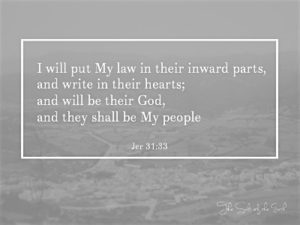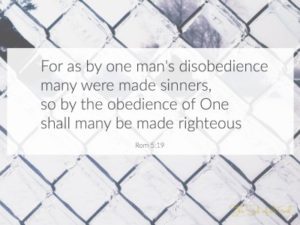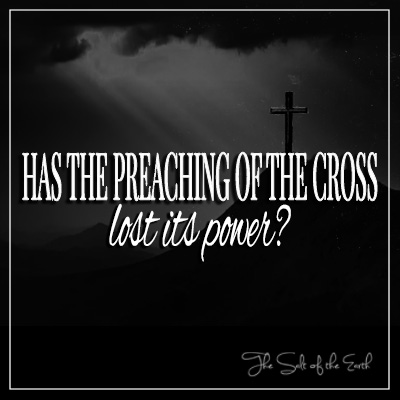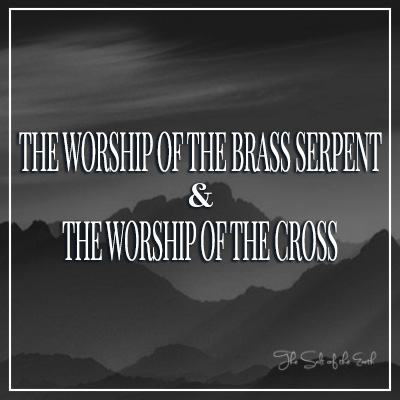Everybody knows that when you violate the law you will receive a penalty. When you drive and exceed the speed limit, and violate the law, you could be rewarded for your deed and receive a fine. Many people complain when they receive a fine. But they forget one thing: they are responsible for the choice they’ve made to exceed the speed limit and violate the law. Kwa hiyo, they are responsible for the fine and no one else. There are many rules written in the law. The people know what is allowed (legal) and what is not allowed (illegal). The law creates clarity and if everyone keeps the law, it creates unanimity. But there are always people, who rebel and make their own laws and put themselves above the law. They decide how fast they will drive, ignore red traffic lights, and park without paying. They ignore the traffic signs, lights, Kanuni, and parking meters and make their own rules. They blame the police and/or parking attendants for their rebellious behavior, when they have no right to do that. Because if they decide to not follow the law, but to do their own will instead, they should also bear the consequences of their decision and behavior and pay the price for their actions. This also applies to the Kingdom of God and the violation of God’s commandment through the disobedience of man, whereby everyone has to pay the price for sin. The question is, who will pay the price for sin? You or …
The law of the Kingdom of God
Every kingdom has a law, that represents the will of the ruler(s) of the country. Jesus is the King of the Kingdom of God. Jesus is the Head of the Church; His Body and the Church should represent, obey and do His law. So that His will, ambayo pia ni ya will of the Father is done on this earth. Every Christian is responsible for his or her own deeds and decides whether to obey and do God’s will or not.
Waumini, who are appointed as leaders of the church, should represent and do God’s will and make God’s will known to the believers. They should teach the truth of God’s Word, correct and protect the believers and keep order in the church, na kadhalika.
The leaders of the church are not responsible to share every week interesting historical facts from the Bible, but they are responsible for the lives of the believers. Faith is more than believing in (historical) facts, it’s a life to live.
The commandments, which Jesus gave to God’s people
Think not that I am come to destroy the law, or the prophets: I am not come to destroy, but to fulfill (Mathayo5:17)
If someone says, that Jesus had no rules and no commandments and didn’t tell anyone to keep the law of God, then the person doesn’t know the Bible and doesn’t speak the truth. Because although God had already made His will known to His people, by giving them His laws, Jesus also made His will known, by making His Father’s will known to the people of God and fulfilled His law through His works. Jesus even said to the people, that they should do and observe what the scribes and Pharisees, told them to do, but that they should not do their works. Since their works didn’t line up with the words they confessed (Mathayo 23:3).
Jesus not only confirmed the law of His Father, but He even tightened the commandments of the Kingdom of His Father and added more commandments to observe (Soma pia: the commandments of God and the commandments of Jesus).
Jesus was the Firstborn of the new creation and knew the capability of the new man if (s)he would love God above all and everyone.
Lakini sasa kuwa huru kutoka dhambi, Uwe mtumishi wa Mungu, you have your fruit unto holiness, na mwisho wa uzima wa milele (Warumi 6:22)
The uumbaji mpya ina died in Christ by laying down the flesh in which sin reigns. Therefore the new creation is redeemed from sin and death, which reigns in the flesh unto death (Warumi 5:21, 6:3-10).
The new creation is transferred from the kingdom of darkness, where death reigns, to the Kingdom of God, where Life reigns (Wakolosai 1:12-14). Hii ndio sababu, uumbaji mpya, who lives after the Spirit, shall no longer obey sin, but shall resist sin and reign over sin. Badala yake, that sin reigns, as is the case in the life of the Mzee, anayeishi kwa kuufuata mwili (Warumi 6:16-22)
The new man shall not destroy the law of the Father, ambayo yanawakilisha mapenzi Yake, but shall fulfill His will, kama Yesu (Mathayo 5:17, Warumi 3:13). Because by the baptism with the Holy Spirit, the Holy Spirit dwells in the new creation, na His laws are written upon the hearts of the new creations; mtu mpya. The new creations shall speak and walk after God’s will (Yeremia 31:33, Ezekieli 36:26-27, 2 Wakorintho 3:2-3, Waebrania 8:10-12)
Mshahara wa dhambi ni mauti
Kwa maana mshahara wa dhambi ni mauti; lakini zawadi ya Mungu ni uzima wa milele kupitia Yesu Kristo Bwana wetu. (Warumi 6:23)
Kila mtu, who is born on this earth is born as a mwenye dhambi and must pay the price for sin, ambayo ni kifo. Because death is the wages of sin. Hakuna mtu aliyetengwa! Although some may think they are the exception to the rule. But every person needs redemption from the flesh and the works of Mzee.
No one, ambaye amezaliwa kwa mbegu ya mwanadamu, is born holy and righteous. Even if you are raised in a Christian family, Tembelea kanisa, be an easy-going person, who looks after the well-being of others, and do many ‘good’ (charity) kazi, all of this and all these works cannot save you from death. There is only one way to be redeemed from the old man and that is through Jesus Christ the Son of the living God!
Only by faith in Jesus Christ and by the death of the old man (Mwili) and the resurrection from the dead of the new man (Roho), you shall be redeemed from sin and be saved from death
That’s why God has sent His Son Jesus Christ as a gift of mercy to the earth to pay the price of sin for sinners.
Jesus Christ has paid the price!
Kwa hiyo sasa hakuna hukumu kwa wale walio katika Kristo Yesu., ambao hawatembei baada ya nyama, Lakini baada ya Roho. Kwa maana sheria ya Roho wa uzima katika Kristo Yesu imeniweka huru kutoka kwa sheria ya dhambi na mauti.. For what the law could not do, in that it was weak through the flesh, God sending his own Son in the likeness of sinful flesh, and for sin, condemned sin in the flesh: That the righteousness of the law might be fulfilled in us, ambao hawatembei baada ya nyama, Lakini baada ya Roho (Warumi 8:1-4)
Jesus was Binadamu kikamilifu and paid the price for sin; kifo.
Although Jesus didn’t deserve the price for sin and didn’t have to pay the price, Jesus took the blame for sinners and the wages of sin, Kifo juu yake mwenyewe, and gave His life for sinners (2 Wakorintho 5:21, Waebrania 2:14).
Jesus has become the Substitute for those sinners, Ambao wanaamini katika Yeye, lay down their own lives (Mzee, anayeishi kwa kuufuata mwili), are raised from the dead (Roho), na mfuate Yesu; Neno na Roho Mtakatifu.
Only through Jesus Christ can a person be redeemed from sin and death, which reign in the flesh, kwa kuulaza mwili.
Kwa hiyo, if you accept the sacrifice of Jesus Christ and the price that He has paid for you, and lay down your life as a sinner and become kuzaliwa mara ya pili katika Kristo, then you won’t have to pay the price for your sins. Because Jesus has paid the price for you and you have identified yourself with His sufferings, kifo, na ufufuo.
By faith and by becoming born again, Wewe ni si mwenye dhambi tena, but you have been made righteous and therefore you shall walk in righteousness (Warumi 5:1; 18-19, 2 Wakorintho 5:20-21).
When you become born again and live after the will of God, which is written in the Word of God and in your heart, then you shall do what pleases Him and glorify your Father in heaven with your life.
The knowledge of the truth
There will come a day for every person that is born on this earth, hiyo (s)he will come to the knowledge of the truth. Which is that Jesus Christ is the Son of the living God and that Jesus Christ is the Way, ukweli, na Maisha. You can come to the knowledge of this truth during your life on this earth or after you die, on the Day of Judgment, but then it will be too late.
When you come to the knowledge of this truth during your life on earth and believe in Jesus Christ, tubu of your carnal walk and become born again in Him and walk on the way in the Truth of the Word and after the Spirit, you shall not see death. On the Day of Judgment, when you are found written in the book of life, you shall receive the reward for righteousness, which is eternal life (i.e. Ufunuo 20:12; 21:1-7; 21:27; 22:3-5).
But if you rebel against the Word of God and keep persevering in sins and are not willing to repent, but listen and obey the flesh and the lusts thereof, then when you die, you shall see death. Because the death shall come and take you.
On the Day of Judgment, when you are not found written in the book of life, you shall find out, that you have to pay the price for your sins yourself. You shall receive the reward of sin, Hii ni kifo cha pili. You shall receive from Him the baptism with fire, in the lake of fire, which will last forever (i.e. Ufunuo 20:11-15; 21:8).
“Kuwa chumvi ya dunia’




